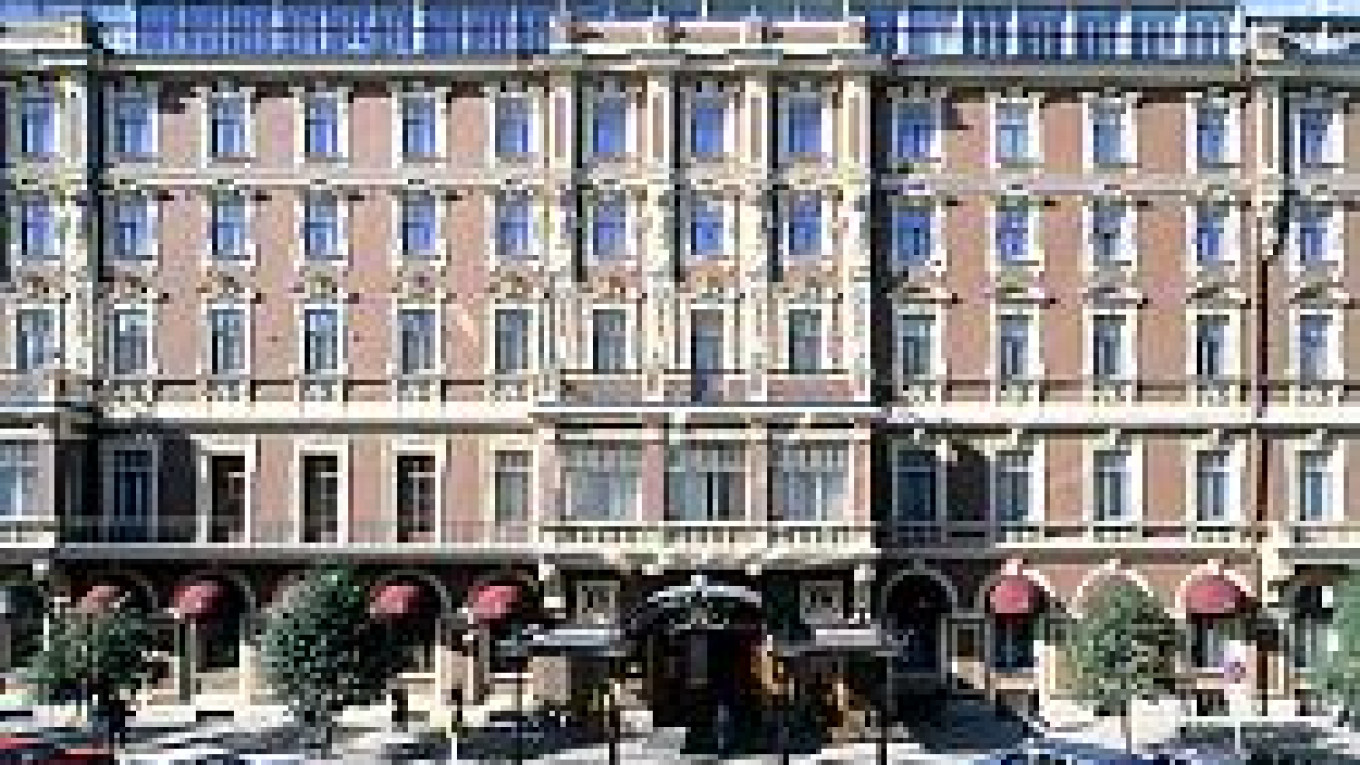Orient-Express has earmarked $30 million to be spent on the hotel in the next few years, said Pippa Isbell, vice president for public relations. This year, it will spend about $5 million.
The hotel's new general manager, Thomas Noll, said the first key investment this year would be made into updating technologies, installing wireless Internet and outdoor lighting, and improving the electrical supply.
The managers plan to work on room renovation and increase the number of suites, as well as bring in an Orient-Express designer who will work with a local artist to create a more traditionally Russian interior and spirit at the hotel.
"We are very much about experiences. Our philosophy as a business is to maintain the spirit of the place in which our hotels are located," Isbell said. "In this respect the Grand Hotel Europe is very much what the city of St. Petersburg is all about, and we won't change that."
In terms of experiences on offer to guests, Noll mentioned several ideas, including a luxury boat to tour the canals or a troika ride to the Hermitage.
The company perceives Russia as an expanding market with great potential.
Although the share of Russian travelers varies according to the destination, the company has noted a lot of Russian visitors in their properties in Portugal, Italy and Spain, as well as in Peru and South Asia.
Orient-Express hopes that the presence of its brand in Russia will boost the popularity of its other hotels.
"One of the things we are happy about with the acquisition of the Grand Hotel Europe is the opportunity for us to have a higher profile in Russia generally," Isbell said.
Until the beginning of this year, the Grand Hotel Europe was managed by Germany's Kempinski Hotels & Resorts. Orient-Express paid about $100 million to acquire Kempinski's stake in what was the largest-ever secondary property market deal in Russia.
Orient-Express does not usually build its hotels, preferring instead to buy historical or original properties. The Grand Hotel Europe, which celebrates its 130th anniversary this year, is the oldest luxury hotel in St. Petersburg.
"Generally we will continue to look [for further acquisitions] in Russia," Isbell added. "Moscow is a great city, and one day we may have a hotel there, too, but St. Petersburg is a great experience for foreigners coming to visit, which is why we have decided to start our operations here."
Most of Orient-Express' marketing activities are concentrated on the U.S. market, which brings its greatest share of clients. The Grand Hotel Europe will maintain this strategy.
Orient-Express banks on a large percentage of leisure travelers who stay in their properties around the world.
"They are prepared to pay higher rates for a high-quality room, so we will work on creating more suites in the hotel," Noll said.
As head of the Russian branch of the internationally respected gastronomic association Chaine des Rotisseurs, Noll is going to look closely into the hotel's cuisine. He will start with the Caviar Bar.
"Caviar and vodka are the magic words for foreigners, so by promoting it more and advertising it more we can bring more foreign guests there," he said. "The interior decor as well as the menu should become more Russian."
It was also Noll's decision to start training Russia's first vodka sommelier. After the training, which could take three to four months, the sommelier should be able to advise guests on the more than 70 vodkas available at the bar and appropriate complementary snacks.
A Message from The Moscow Times:
Dear readers,
We are facing unprecedented challenges. Russia's Prosecutor General's Office has designated The Moscow Times as an "undesirable" organization, criminalizing our work and putting our staff at risk of prosecution. This follows our earlier unjust labeling as a "foreign agent."
These actions are direct attempts to silence independent journalism in Russia. The authorities claim our work "discredits the decisions of the Russian leadership." We see things differently: we strive to provide accurate, unbiased reporting on Russia.
We, the journalists of The Moscow Times, refuse to be silenced. But to continue our work, we need your help.
Your support, no matter how small, makes a world of difference. If you can, please support us monthly starting from just $2. It's quick to set up, and every contribution makes a significant impact.
By supporting The Moscow Times, you're defending open, independent journalism in the face of repression. Thank you for standing with us.
Remind me later.


